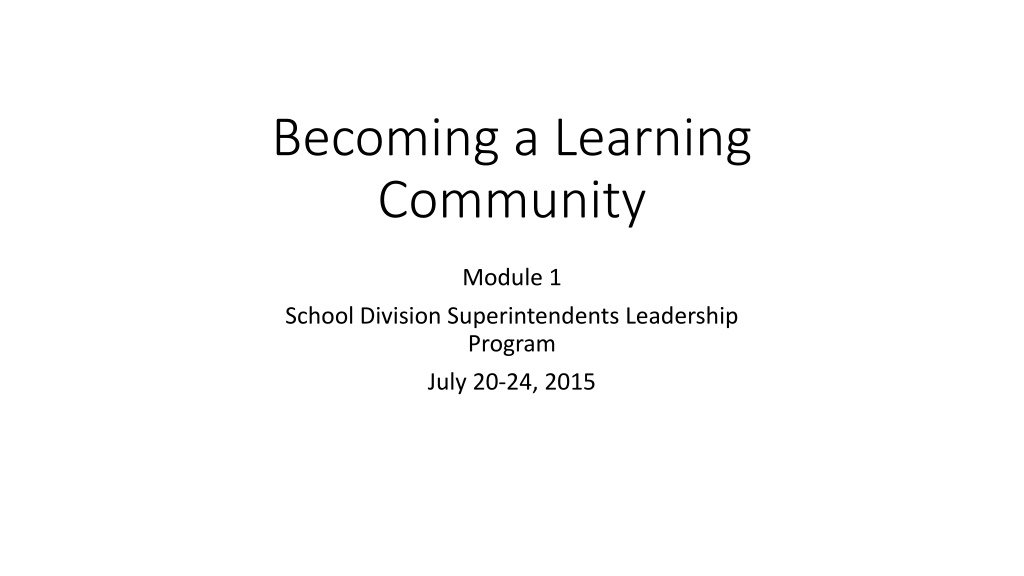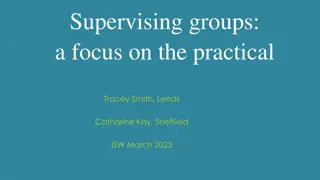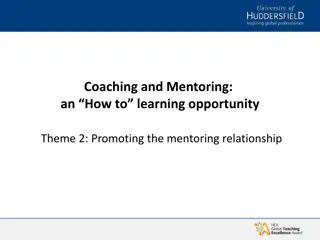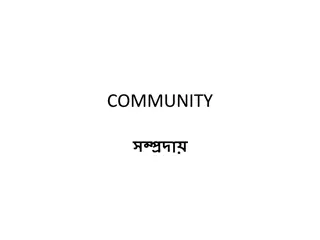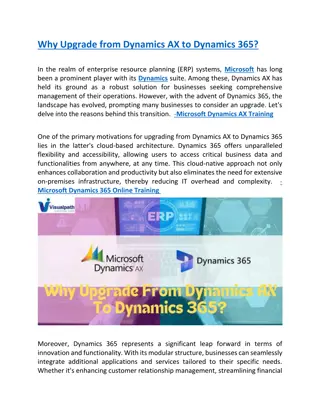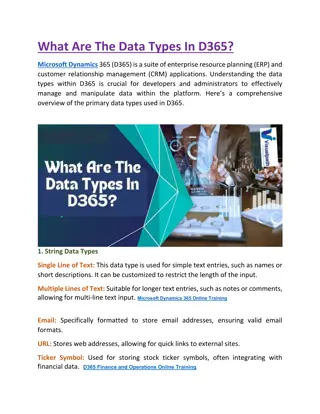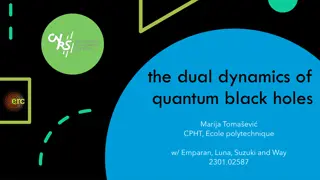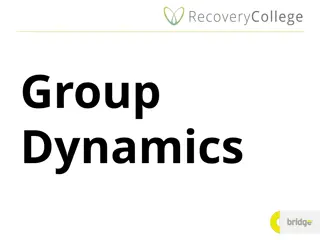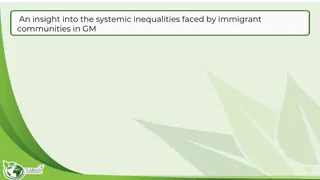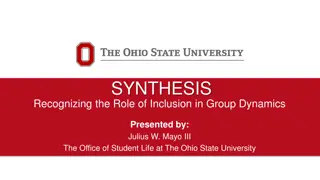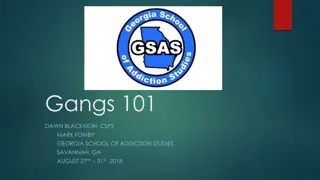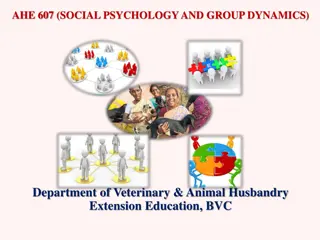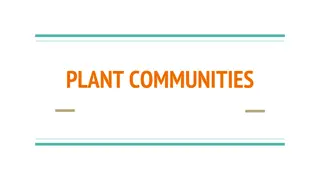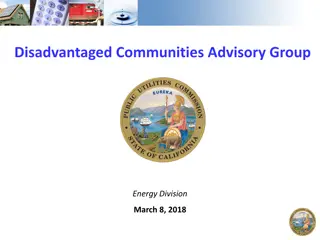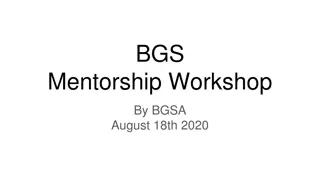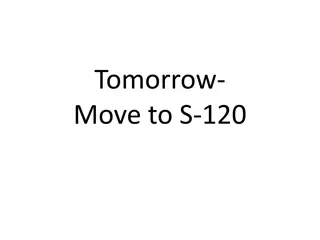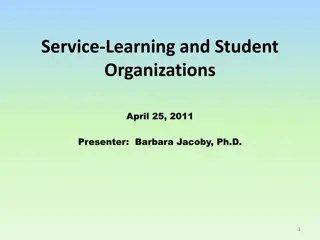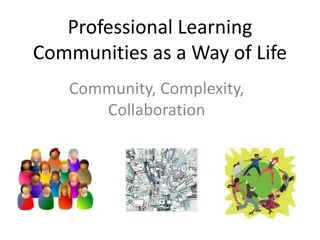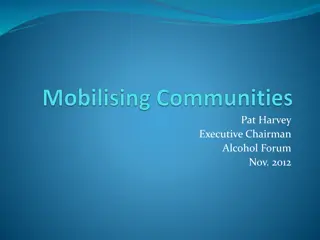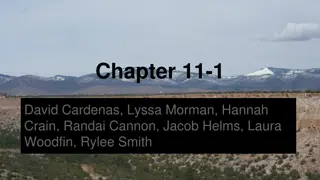Effective Group Dynamics in Learning Communities
Delve into the intricate dynamics of group interactions within a learning community. From observing mental models to understanding task and maintenance behaviors, this module offers insights into communication, participation, decision-making, and more. Learn about the Cynefin Framework and the nature of complex issues, providing tools to navigate challenges and foster collaborative problem-solving.
Download Presentation

Please find below an Image/Link to download the presentation.
The content on the website is provided AS IS for your information and personal use only. It may not be sold, licensed, or shared on other websites without obtaining consent from the author.If you encounter any issues during the download, it is possible that the publisher has removed the file from their server.
You are allowed to download the files provided on this website for personal or commercial use, subject to the condition that they are used lawfully. All files are the property of their respective owners.
The content on the website is provided AS IS for your information and personal use only. It may not be sold, licensed, or shared on other websites without obtaining consent from the author.
E N D
Presentation Transcript
Becoming a Learning Community Module 1 School Division Superintendents Leadership Program July 20-24, 2015
Check-in Significant learning about mental models
Process Observation and Analysis
What Can Be Observed in Groups Content: what is being discussed Process: how things are being discussed
Processes in Group Interactions Communication Participation Influence Decision Making Membership Feelings Group Atmosphere Norms
Task Behaviors Initiating Seeking information or opinion Giving information or opinion Clarifying and elaborating Summarizing Consensus testing
Maintenance Behaviors Harmonizing Gatekeeping Encouraging Compromising Standard setting and testing
POA Exercise Operation Stork
The Cynefin Framework (from D. Snowdenand M. Boone) Context Domain Simple Best Practice Complicated Experts Complex Emergence Chaotic Rapid Response
Nature of Complex Issues LOW NATURE OF COMPLEXITY Dynamic HIGH Cause and effect are close together in time and space Cause and effect are far in time and space People who are part of the problem share common assumptions, values, rationale and objectives Future is familiar and predictable People who are part of the problem look at things differently Social Solutions to the problem/s are not in sight Generative
Working Through Complex Issues Nature of Complexity Intervention Approach Methodology Dynamic Systemic Systems Thinking Social Participative Multi-Stakeholder engagement Generative Emergent Creative
Complex Issues Faced by SDS or Negative MMs about SDS
Organizations as Open System FOCAL SYSTEM Related Systems System Elements Related Systems MACRO SYSTEM MEGA SYSTEM SOURCE: Southeast Asian Interdisciplinary Development Institute School of OD
FOCAL SYSTEM : Health Human Resource Development Bureau HHRDB Department Of Health HHRDB P&S D&T Adm Mgt Planning & Standards Development & Training Administrative Unit Management SYSTEM MAP MACRO SYSTEM : NGO SENATE LGU EAC BIHC F/SP DH TO HOC HPDPB AS PD IMS HEMS CHD HRDU FS PLS HRC External Affairs Cluster Bureau of Int. Health Cooperation Fellowship/Scholarship Program DOH Hospitals Training Office Health Operations Cluster Health Policy Dev t & Planning Bureau Administrative Service Personnel Division Information Management Service Health Emergency Management Staff Centers for Health Development Human Resource Development Unit Finance Service Procurement & Logistics Service Health Regulation Cluster MEGA SYSTEM : Nat. Economic Dev t Authority Scholarship Committee Multi-lateral Agencies Bilateral Agencies Local Government Unit Non-Governmental Organization Senate of the Philippines House of Representatives Academe Professional Organizations Professional Regulation Commission Commission on Higher Education other Governmental Organization Department of Budget & Management Department of Foreign Affairs Committee on Filipino Overseas LH MA NEDA CHD ACA SC DH HPDPB HRDU TO EAC BA BIHC IMS F/SP PO D&T P&S DFA CFO HHRDB HRC Adm FOCAL SYSTEM Mgt PRC PLS PD AS NEDA SC MA BA LGU NGO SENAT E LH ACA PO PRC CHED OGO DBM DFA CFO HEMS FS HOC CHED MACRO SYSTEM OGO DBM MEGA SYSTEM Work Team No. 1 Central Office Ken, Carla, Eric, Gwyn and Josie
Politics NGOs / Civic Groups Local & National Gov t. TPD Labor Federation Technical PD Transpo Prod n. Support Services AREA C.O.D. Group Directors All Sales Mgrs All Sales Sup All Sales Pro All Delivery Pro Focal System BIS Consumer Groups Legal S M C C O M P E T I T O R S OD HR HO/ Plant Finance Manufacturer of Substitutes Security CCAmatil N K A C.O.D HO D E N R Media TCCEC Inner Macro System Ad Agencies Stockholders B F A D D O H Outer Macro System Members: Gilbert Paderogo Roland Leonardo Allan Gamboa Jonn Tuason-Magno SYSTEM MAP Mega System
Prof Orgs Other Countries SMC Media Other Govt Agencies Comm Orgs Intl Orgs Customers/Consumers HRIMS Manpower Local Communities Other Industries Planning/Recruitment EXECOM SEC Head Office Personnel Medical Services Legislative IR LEGAL Suppliers CORPCOM Compensation and Benefits Shareholders Direct Competitors Local Government TCCEC CCBPI Head Office Personnel Systems Map H Haulers/Contractors Submitted by: Karen Borillo, Nerissa Carino, Lee Cruz and Edna Malabanan Society
Dangal = I am the boss = I am / must be right! Quality of Leaders S Utang na loob = Debt of gratitude Economic S Political Capacity to Earn S Work Quality of Decisions Performance O Paggalang = Respect for Authority S O Pwede na = It will do! Desire to Work Abroad O Quality of Teachers / Graduates S Poverty Level Learning Materials Child S OFW Phenomenon O Prostitution O S Broken Families S Academic Performance S More money = Better family life in the future S O S Out of School Youth Health & Nutrition S Distorted Values Child Labor Bahala Na = Fatalism / Everyone to his own O S S S S S Loss of Juvenile Delinquency Peace & Order Filipino Identity O S Street Children S Cultural Social SOURCE: Juan A. Kanapi, Jr. PhD, OCCI-TRAIL Learning Journey, 2011.
A good innovator does not have a preconceive notion. Find out what is there. Learning Evaluation Research as Learning Journey Curriculum Design S Learner excitement = acting w/ new eyes. S New Idea Perception of Failure / New Possibility Vision Clarity S Graduates as better Thinkers / Doers Improved work outputs Self-propelled learning Higher adversity quotient Lifestyle change Discernment of Call of the Spirit Collaborative capacities S S S Prototype S O S Need to Reflect / Study Satisfaction Curriculum Design Aha! O delay Designs that work can t be too far from present practice. New Program S The Philippines needs help to develop. S S S Learner Pace Education is an effective tool for national development. Learner Stimulation Multi-sensory experiences Fun Sharing of experiences Process questions Applications Synthesis S Learner Selection O Teacher = Master of Learning Process S S Poverty Level Learner Questions (Relevance) S Learner Context Processing of multi-sensory experience creates a synthesizing mind. Questions is the tool of the teacher. It is not about you but about who you are designing the program for. Adult Learning Process SOURCE: Juan A. Kanapi, Jr. PhD, Interview of Eduardo A. Morato, Jr. PhD., 2011.
Drawing a Causal Loop = Systems Thinking Identify a SOCIAL DIVIDE you wish to understand Tell the STORY as you understand it (different individuals will have different angles to the story ) Identify the VARIABLES Show the LINKS between variables Label the RELATIONSHIPS between variables as either S or O Determine the NATURE OF THE LOOP as either R or B CHECK if the causal loop depicts the story as you (individual or group) understands it.
Variables Issue Possible Variables Unemployed graduates Needs of employers Training-job match Rate of starting salary Pollution level Source of livelihood Garbage disposal system Degradation of environment
Relationship between Variables S ame When one variable goes up, the other goes up; when one goes down, the other also goes down When one variable goes up, the other goes down; when one goes down, the other goes up O pposite
Nature of the Loop R einforcing No O or even count Events lead to growing or declining consequences Events lead to stability & resistance to change B alancing If odd counts of O
Checkout Realizations about the nature of groups as systems
